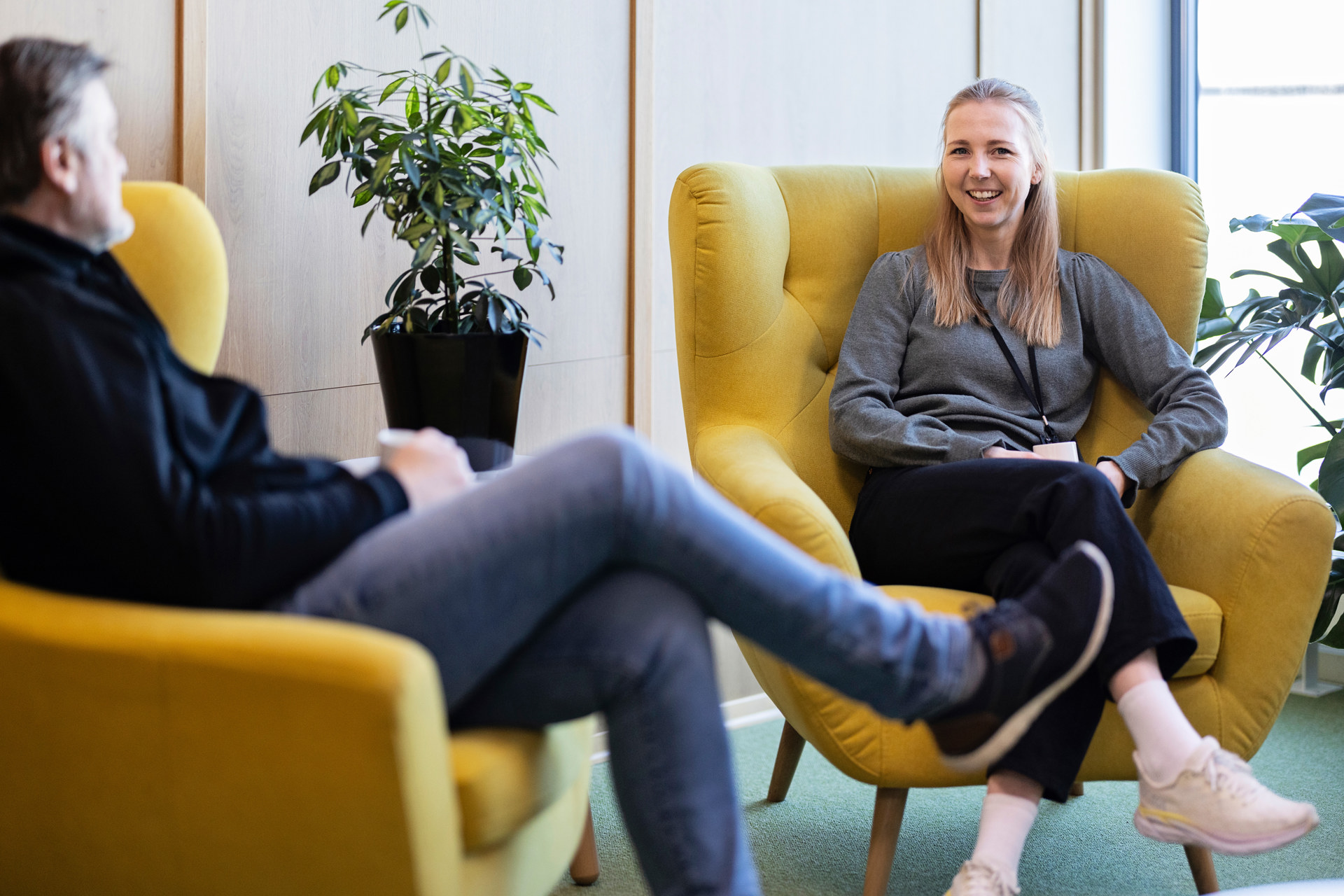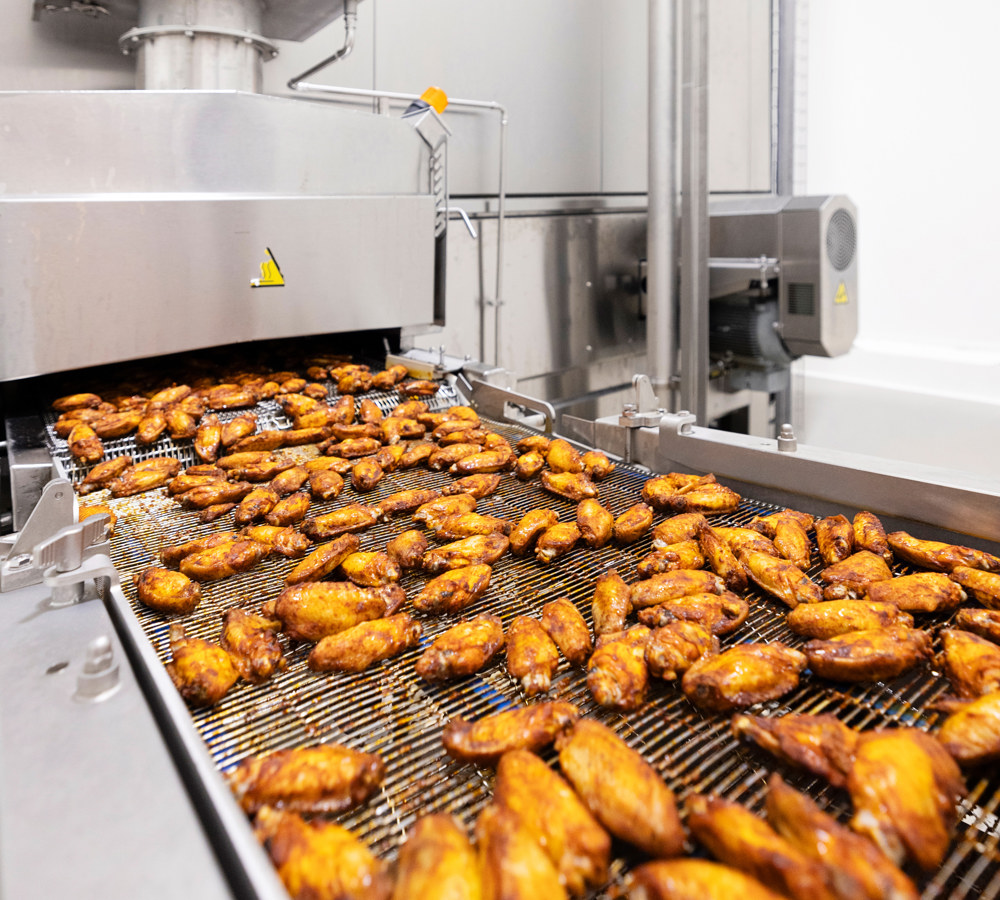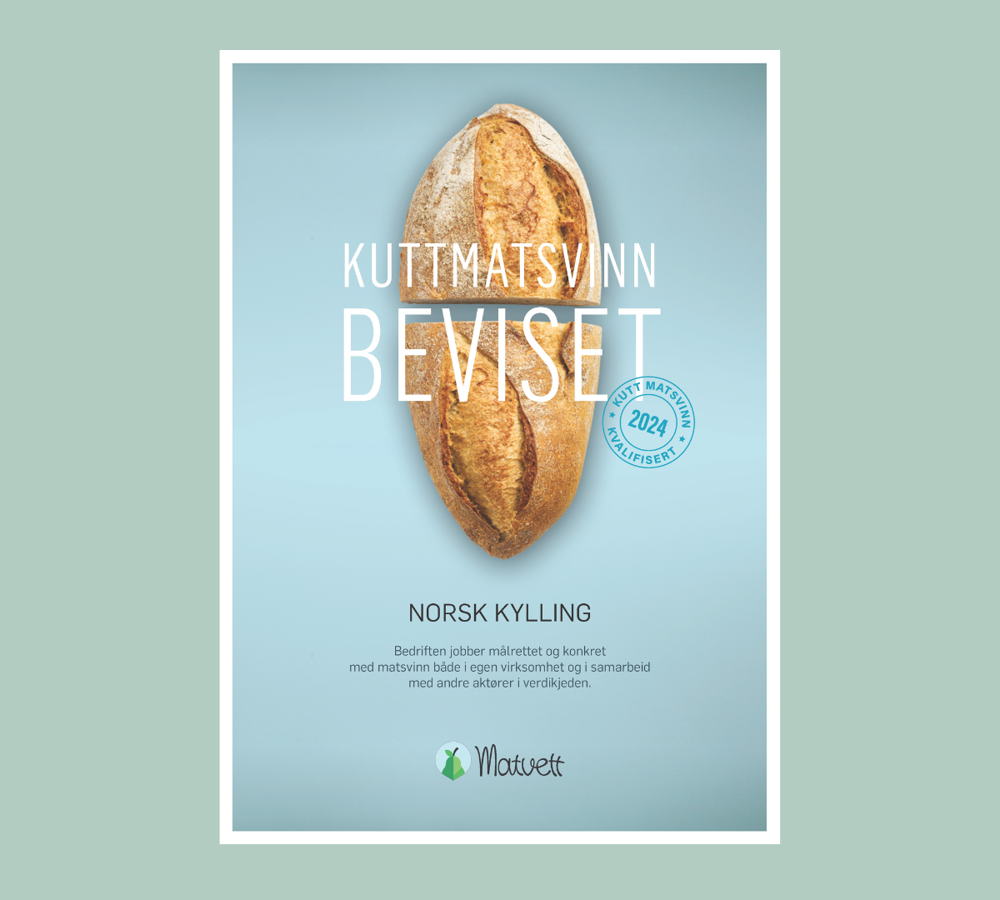Collaboration for research and development

At Norsk Kylling, we believe in collaboration and sharing knowledge as an important part of our development. By combining insight, technology, and people, we find solutions that both reduce waste and create added value in the value chain.
700,000 more meals a year
At our processing plant, we slaughter just over 60,000 chickens every day – that's four chickens per second. In such an extensive production, even small improvements can have a significant impact. In 2024, we installed a new machine with more precise breast fillet cutting. It has a sensor that analyses each chicken and adjusts the knife and cutting process accordingly. This allows us to extract 8 grams more fillet per chicken for food, which corresponds to about 700,000 additional meals per year.
This type of innovation doesn't happen alone. Our suppliers are key partners in the development of new technologies. Together, we improve solutions that will be crucial for the future food industry.

Small changes - big gains
At Norsk Kylling, we have many skilled employees with a strong commitment to innovation and development. We have dedicated improvement teams that contribute to identifying and solving challenges. One of the most significant initiatives in 2024 came from the team working on grilled products.
They addressed the issue of large amounts of seasoning falling off during the process. A tweak to the product recipe resulted in a reduction of 74 kilograms of seasoning per production run, equivalent to 12.5 tons per year. This not only provides a significant financial gain but also an environmental benefit. Seasoning is the fifth largest source of emissions in our value chain, and this measure corresponds to a reduction in the carbon footprint equivalent to 885 flights between Trondheim and Oslo. A great example of how seemingly small changes can lead to big results.
We are reducing food waste
The KuttMatsvinn certificate is awarded by Matvett to actors in the food and hospitality industry who are leading the way in reducing food waste towards 2030. Together with other partners in the agreement, we are working strategically to halve food waste in Norway, in line with the UN's Sustainable Development Goals.
The certificate states that we are showing concrete and targeted work on reducing food waste in our own operations and in collaboration with others in the value chain.
We have maintained a consistently low level of food waste in recent years, with only 0.95 percent waste at the processing plant in 2024.

Smarter production planning
In 2024, we launched a pilot project for better production planning using machine learning and artificial intelligence. The goal is for the entire value chain to produce the right product at the right time, thereby minimising waste at every stage. A more accurate sales forecast leads to better upstream production planning, more efficient production, higher delivery rates, and less waste in distribution and retail.
Together with REMA Distribution, we are now further developing the solution, working on integrating more data, and creating a solution that will also work for other value chains. When technology is combined with expertise and experience, we are better equipped to produce efficiently and responsibly, with as little waste as possible.
Increased product shelf life
Good shelf life reduces the risk of food being wasted due to expiration. Since 2020, we have increased the shelf life of our products by 14 percent. For us as a producer, this is about continuously improving hygiene practices, production processes, and equipment. In this work, we closely collaborate with suppliers, the industry, and research communities.
In the project MICROORC, we are working with 17 partners from nine different countries to achieve better food quality, increase shelf life, and reduce waste. One of the goals is to develop smart labeling for shelf life, ensuring that consumers can be completely confident that the expiration date is accurate.




